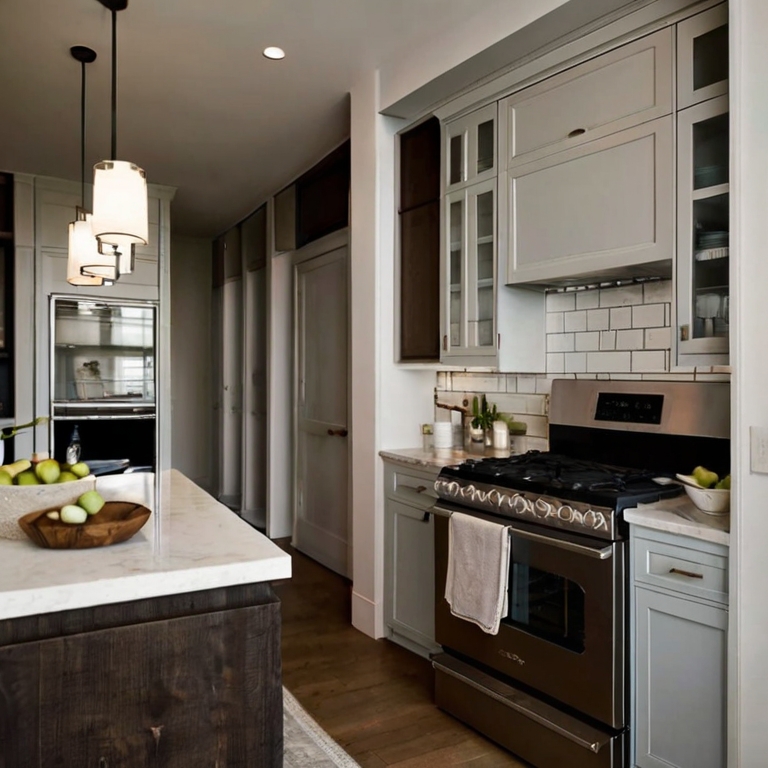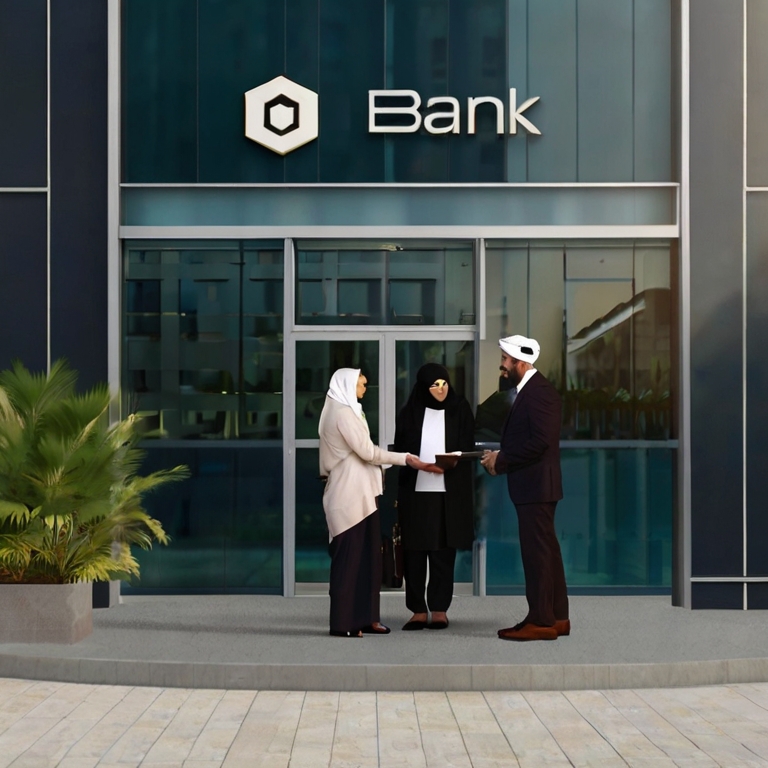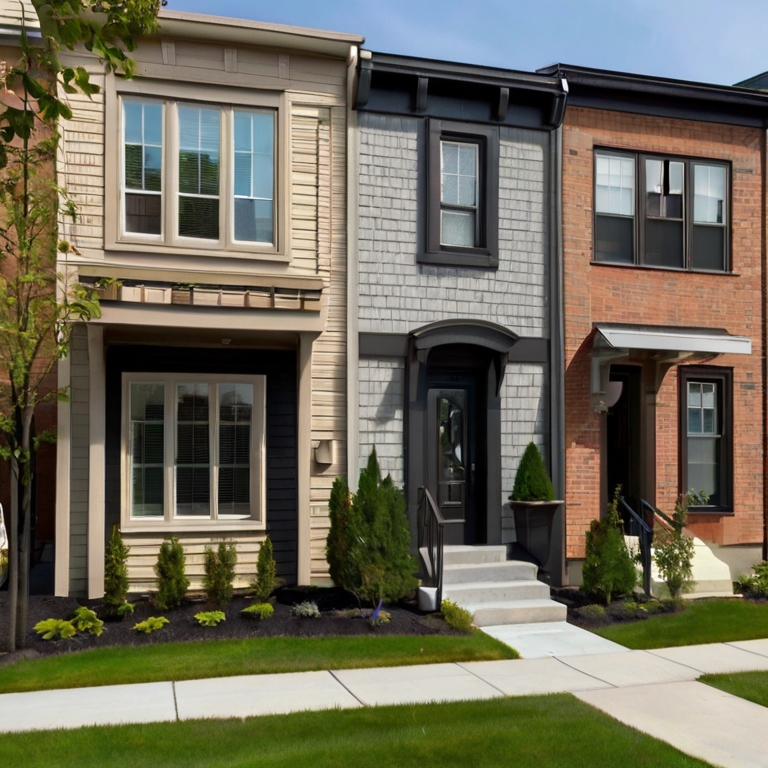Unveiling the Truth: The Potential Pitfalls of Halal Mortgages for Families
Introduction to Halal Mortgages
As families seek alternative financial solutions that align with their ethical and religious beliefs, halal mortgages have gained prominence as a viable option. Distinguished by their adherence to Islamic law, which prohibits interest, halal mortgages promise a form of financing that avoids 'riba' (usury). Instead of traditional interest payments, these mortgages typically involve the bank buying the property and selling it back to the buyer at a profit, structured through rent-to-own or partnership agreements.

However, while halal mortgages offer a crucial financial pathway for many, they are not without their complexities and potential drawbacks. This article explores the nuances of halal mortgages and highlights the risks they might pose to families. By delving into their financial structure, contrasting them with conventional mortgages, and providing practical advice, we aim to equip families with the knowledge needed to navigate these financial waters prudently.
Understanding the Financial Structure of Halal Mortgages
Halal mortgages distinguish themselves from conventional mortgages through their unique financial structure that adheres to Islamic financial principles, primarily avoiding the payment or receipt of interest. This adherence is based on the Islamic prohibition against 'riba', which translates to an increase or excess, typically interpreted as interest in financial transactions. Instead of interest rates, halal mortgage lenders utilize contracts based on joint ownership (Musharaka) or leasing (Ijara).
Musharaka (Partnership Agreement)
In a Musharaka agreement, the bank and the borrower jointly purchase the property. The borrower then buys the bank's share in the property gradually over time, thus increasing their own equity in the property. Each payment made does not only contribute towards acquiring the bank’s share but also towards living in the house, separating the ownership costs from the rental costs transparently.

Ijara (Lease to Own)
Under the Ijara model, the bank buys the property and leases it to the borrower. The lease payments do not constitute interest but are instead part of a rental agreement, with a portion of each payment going towards purchasing the property outright. At the end of the term, ownership of the property transfers from the bank to the borrower, typically without additional costs.
These models ensure compliance with Islamic laws but introduce different financial implications for families. While these arrangements avoid the religious prohibition of interest, they often involve other fees and higher initial costs that can impact the total financial burden on a family. Furthermore, because these contracts are relatively more complex than straightforward interest-based mortgages, they can include clauses and terms that may not be immediately apparent to borrowers.
For families considering a halal mortgage, it is crucial to understand every aspect of these agreements. The lack of traditional interest payments might seem appealing, but the overall financial commitment and the terms of agreement need to be evaluated carefully to ensure they are truly advantageous.

Potential Risks for Families
While halal mortgages offer a compliant alternative to conventional mortgages for those adhering to Islamic financial principles, there are potential risks that families should be aware of before committing to such agreements.
Hidden Costs and Higher Fees
One of the primary concerns with halal mortgages is the possibility of hidden costs and generally higher fees. Although these mortgages do not involve interest, the structured profit rates, closing costs, and administrative fees can accumulate, sometimes making the total cost of buying a home more expensive than with traditional mortgages. Families must scrutinize the total payment breakdown to understand fully what they are committing to financially.
Contract Complexity
The contracts for halal mortgages can often be more complex than those for conventional mortgages. This complexity stems from the need to structure these agreements to avoid the concept of interest while still ensuring profitability for the lender. Families must navigate these complexities and understand each clause thoroughly, which often requires legal or financial advisory, adding to the overall cost.

Fluctuating Payments
In some halal mortgage models, payment amounts can fluctuate based on rental market rates or the bank's determination of their profit share. This variability can pose a budgeting challenge for families who might not have a fixed repayment amount as they would with a conventional mortgage's interest rate.
Early Payment Penalties
Some halal mortgage agreements include penalties for early repayment, which can trap families in longer-term financial commitments than they might initially plan for. These penalties can discourage paying off the mortgage early, which contrasts sharply with some conventional mortgages that allow for more flexible repayment.
Property Valuation Disputes
Since the bank and borrower are often joint owners in halal mortgages until the mortgage is fully paid off, there can be disputes regarding property valuation during the buyout phases. These disputes may lead to complications or additional costs if one party believes the property value has been appraised unfairly.
Understanding these risks is crucial for families considering halal mortgages. Thorough due diligence, possibly including consultation with financial advisors who specialize in Islamic finance, can help mitigate these risks and ensure that the chosen financial product truly benefits the family’s financial and ethical objectives.
Comparative Analysis with Conventional Mortgages
When considering halal mortgages, it is vital for families to understand how these differ from conventional mortgages in terms of financial obligations, risks, and potential benefits. This comparison can illuminate whether a halal mortgage truly aligns with a family's financial goals and ethical values.

Interest vs. Profit Rates
The most fundamental difference lies in the basis of the charge. Conventional mortgages involve interest rates, which can vary based on market conditions and the borrower's creditworthiness. Halal mortgages, on the other hand, operate on a profit-share or rental basis, avoiding interest to comply with Islamic principles. While this might seem merely a terminological difference, it affects how payments are calculated and can influence the total cost over time.
Transparency and Complexity
Conventional mortgages are generally straightforward, with clear terms and fixed or adjustable interest rates that dictate monthly payments. Halal mortgages can be more complex, involving terms that may not be as familiar to most consumers, such as profit-share ratios and rental agreement terms. This complexity can sometimes lead to less transparency, where borrowers may not fully understand the cost implications without thorough analysis and professional advice.
Flexibility in Payments
Conventional mortgages often offer more flexibility in terms of repayment options, such as the ability to make overpayments or settle the mortgage early without significant penalties. Halal mortgages, particularly those structured on a rent-to-own basis, might have stricter terms regarding payment flexibility, potentially including penalties for early repayment, as noted in the risks section.
Risk Sharing
One of the principles behind halal financing is the sharing of risk between the lender and the borrower. In many halal arrangements, the lender shares in the risk of the property investment, unlike in conventional mortgages where the borrower assumes most of the risk. This can be advantageous in scenarios where the property value decreases.

Case Studies
Real-life examples can shed light on the practical implications of choosing between halal and conventional mortgages. For instance, a family opting for a halal mortgage might find the initial costs higher but benefit from the risk-sharing model during an economic downturn, whereas families with conventional mortgages might benefit from lower initial costs but face higher risks if property values decline.
Understanding these differences is crucial for making an informed decision about which type of mortgage best suits a family's needs. The choice often depends on personal financial situations, long-term goals, and ethical considerations.
Advice for Families Considering Halal Mortgages
Choosing a halal mortgage involves careful consideration and strategic planning. Here are some crucial tips and resources for families embarking on this journey:
Educate Yourself on Islamic Finance
Before entering into any financial agreement, it's vital to have a thorough understanding of the principles of Islamic finance. This knowledge will aid in understanding the terms of halal mortgages and in evaluating whether these terms are genuinely Sharia-compliant. There are many resources available online, and some financial institutions also offer seminars and workshops on Islamic finance.

Consult with Islamic Finance Experts
It's advisable to consult with financial advisors who specialize in Islamic finance. These experts can provide insights into the various structures of halal mortgages and help compare them with conventional options. They can also assist in navigating the complex terms and conditions of these agreements.
Scrutinize the Contract
Pay close attention to the contract details. Look for any hidden fees, the conditions under which rates might change, and any penalties for early repayment. Understanding every aspect of the contract can prevent unexpected financial burdens down the line.
Compare Different Providers
Not all halal mortgages are structured the same way, so it’s beneficial to compare different providers. Evaluate their terms, customer service, and the flexibility they offer. Also, check reviews and testimonials from other customers to gauge their experiences.
Plan for Financial Changes
Because some halal mortgage payments can fluctuate, it's important to plan your finances accordingly. Ensure that your budget can accommodate potential increases in payment amounts. Setting aside a contingency fund can also provide a buffer against unforeseen financial strains.
By following these tips, families can better navigate the complexities of halal mortgages and choose a solution that best fits their financial situation and ethical commitments. Armed with the right information and guidance, the journey to owning a home can be both financially and morally rewarding.

Halal mortgages offer a unique financial solution for families looking to align their home financing with Islamic principles. While these mortgages provide an ethical alternative to conventional mortgages by avoiding interest, they come with their own set of complexities and potential pitfalls. Families must approach these financial products with a clear understanding of their structure, costs, and the terms involved.
As we've explored throughout this article, it is essential for potential borrowers to educate themselves, seek expert advice, and meticulously review all contract details. Comparing different halal mortgage providers and preparing for potential financial shifts can also make a significant difference in the overall experience and financial impact of such mortgages.
In conclusion, while halal mortgages can be a viable option for many, they require careful consideration and proactive financial planning. By being well-informed and vigilant, families can ensure that their choice not only supports their financial goals but also upholds their ethical values. Choosing the right mortgage is a critical decision that will impact a family's financial future and should be made with both wisdom and foresight.





